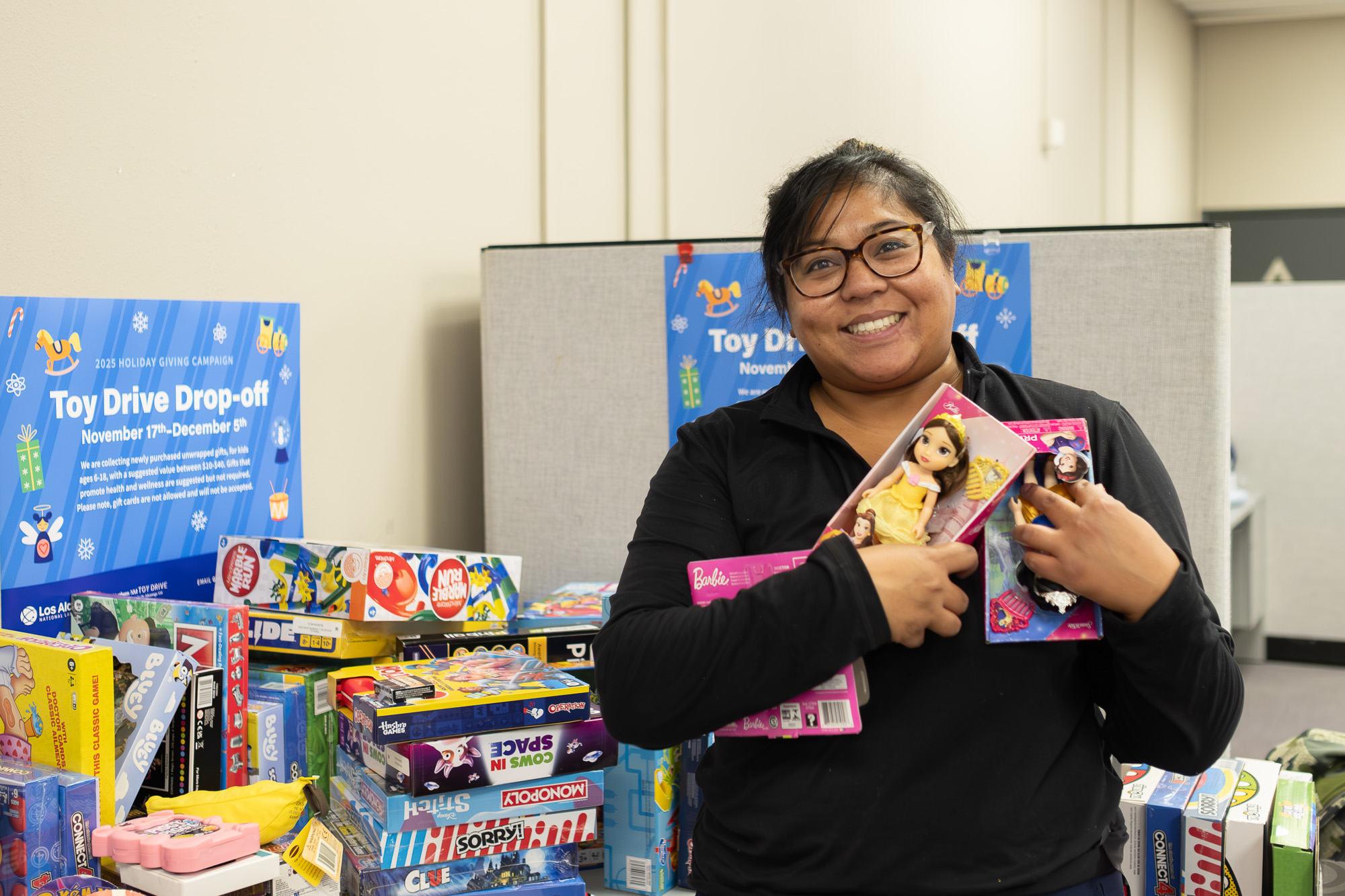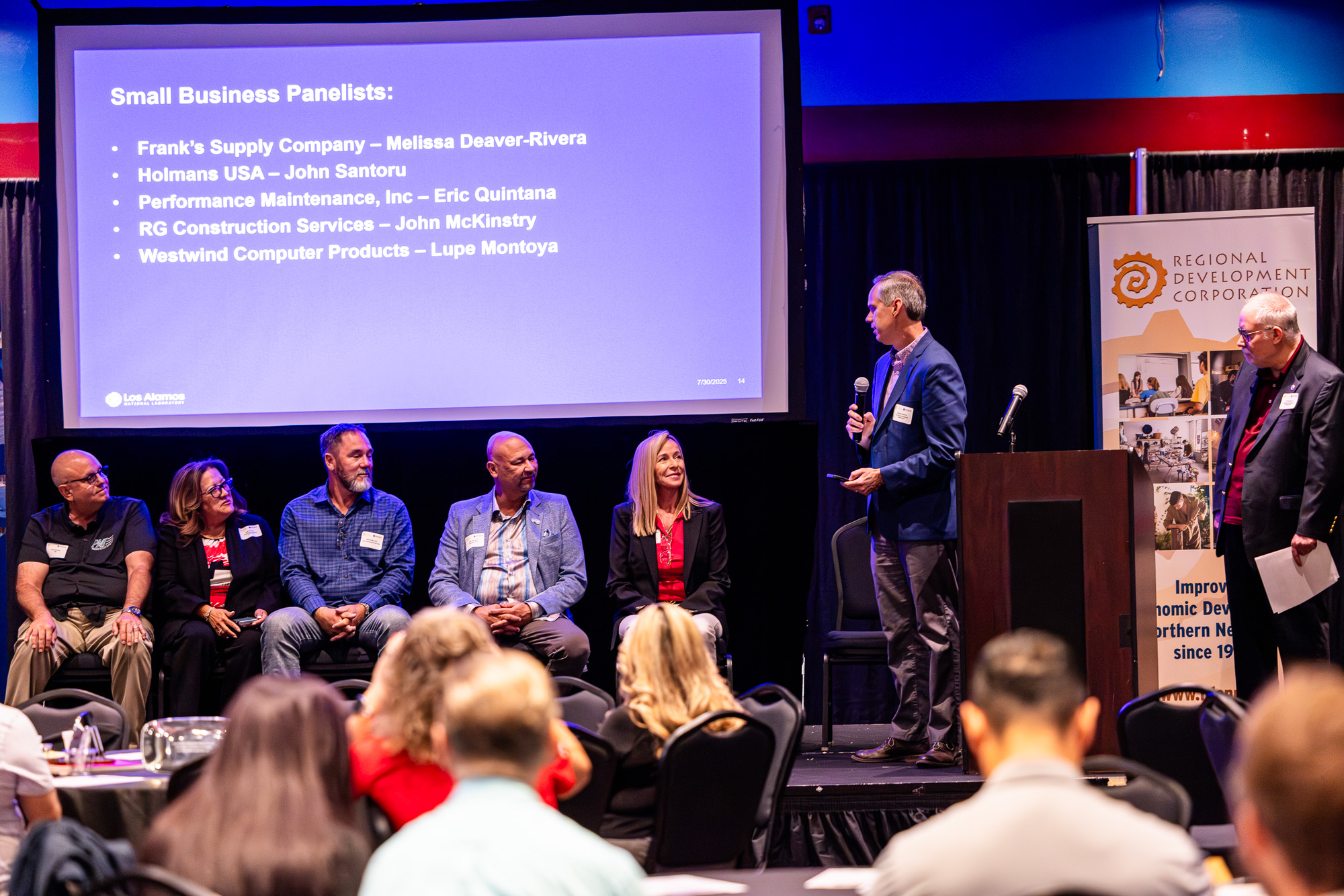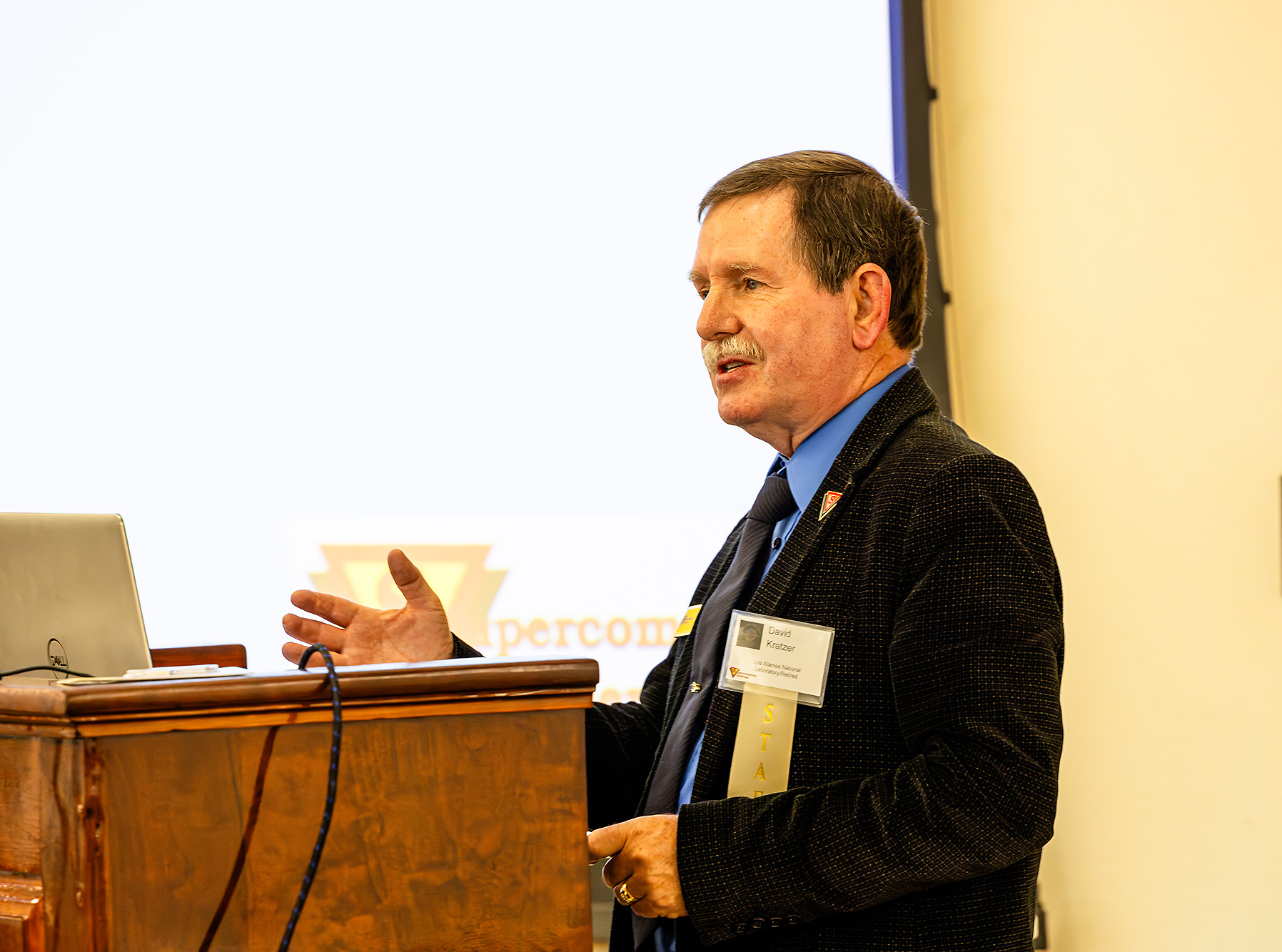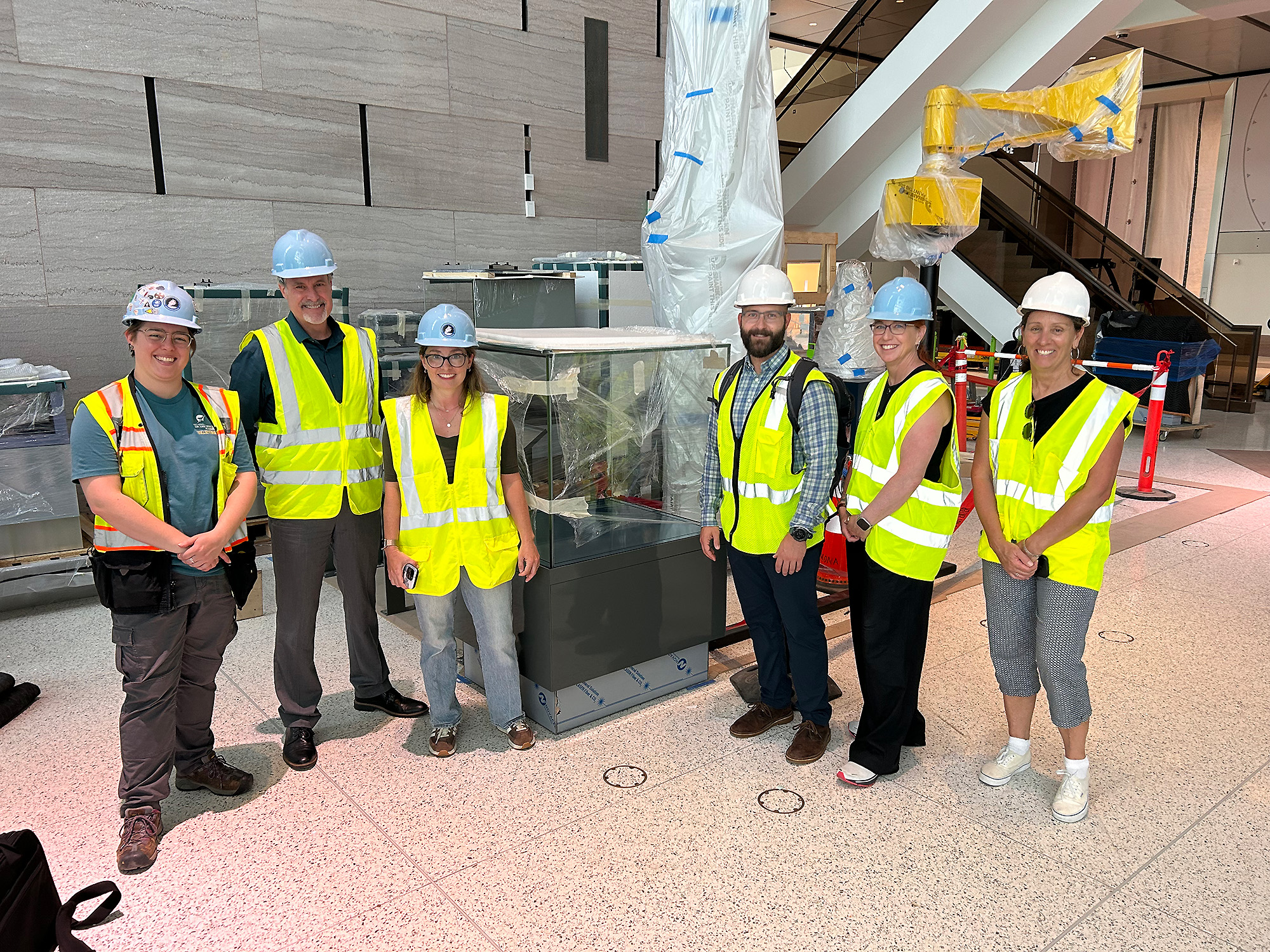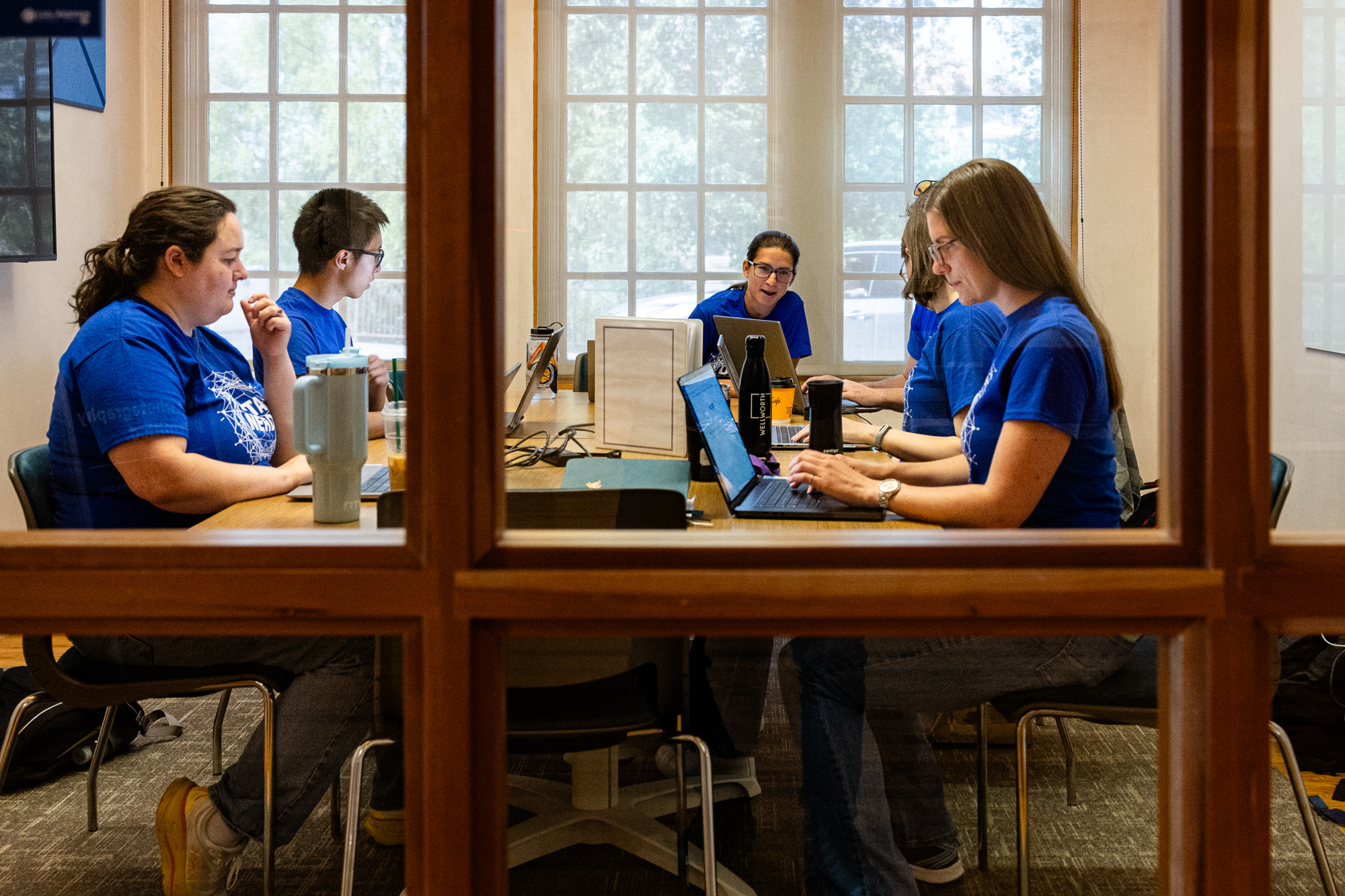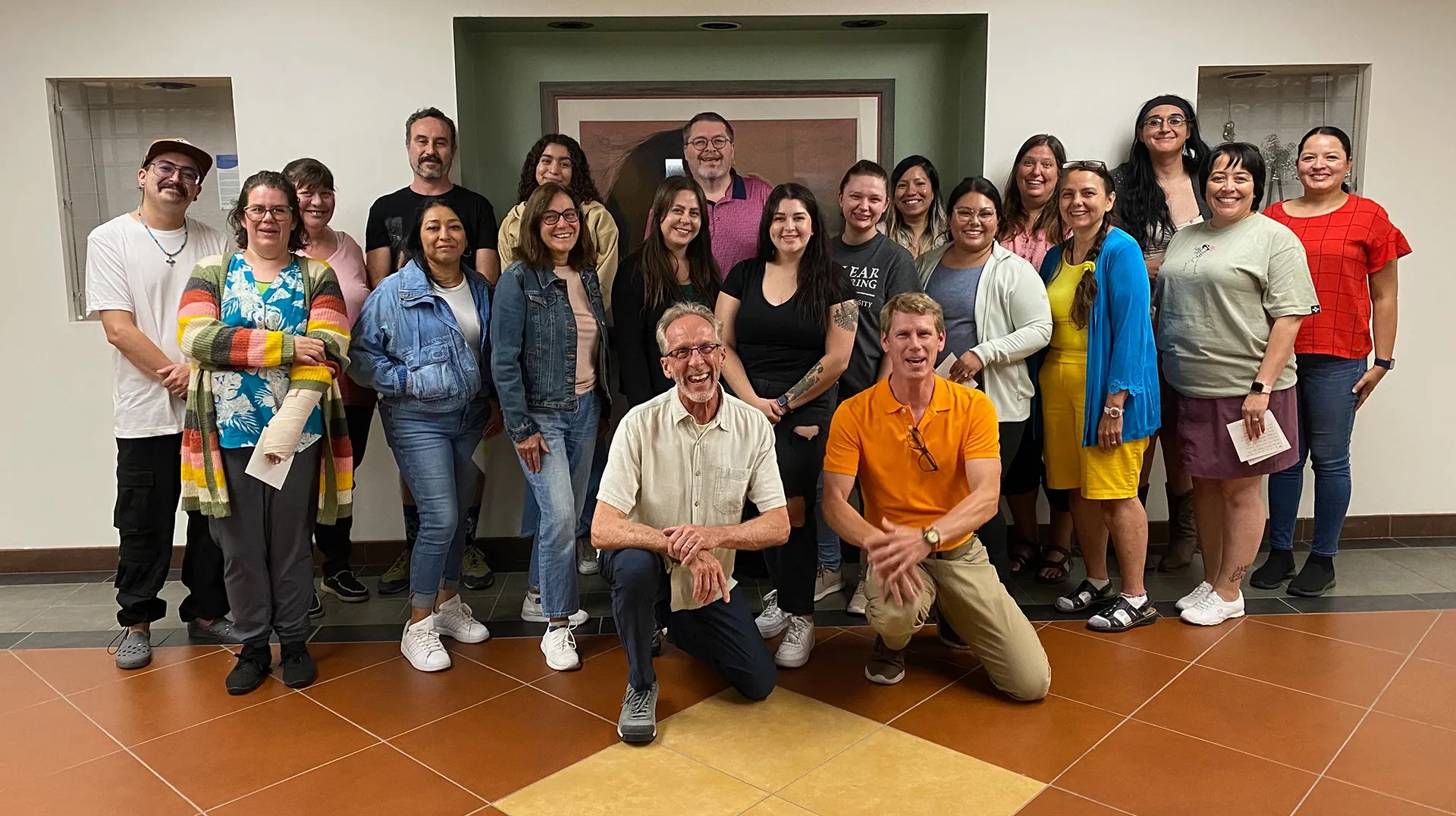Data analysts lend expertise to local organizations
Lab's 5th annual Data Sprint helps groups gain insights
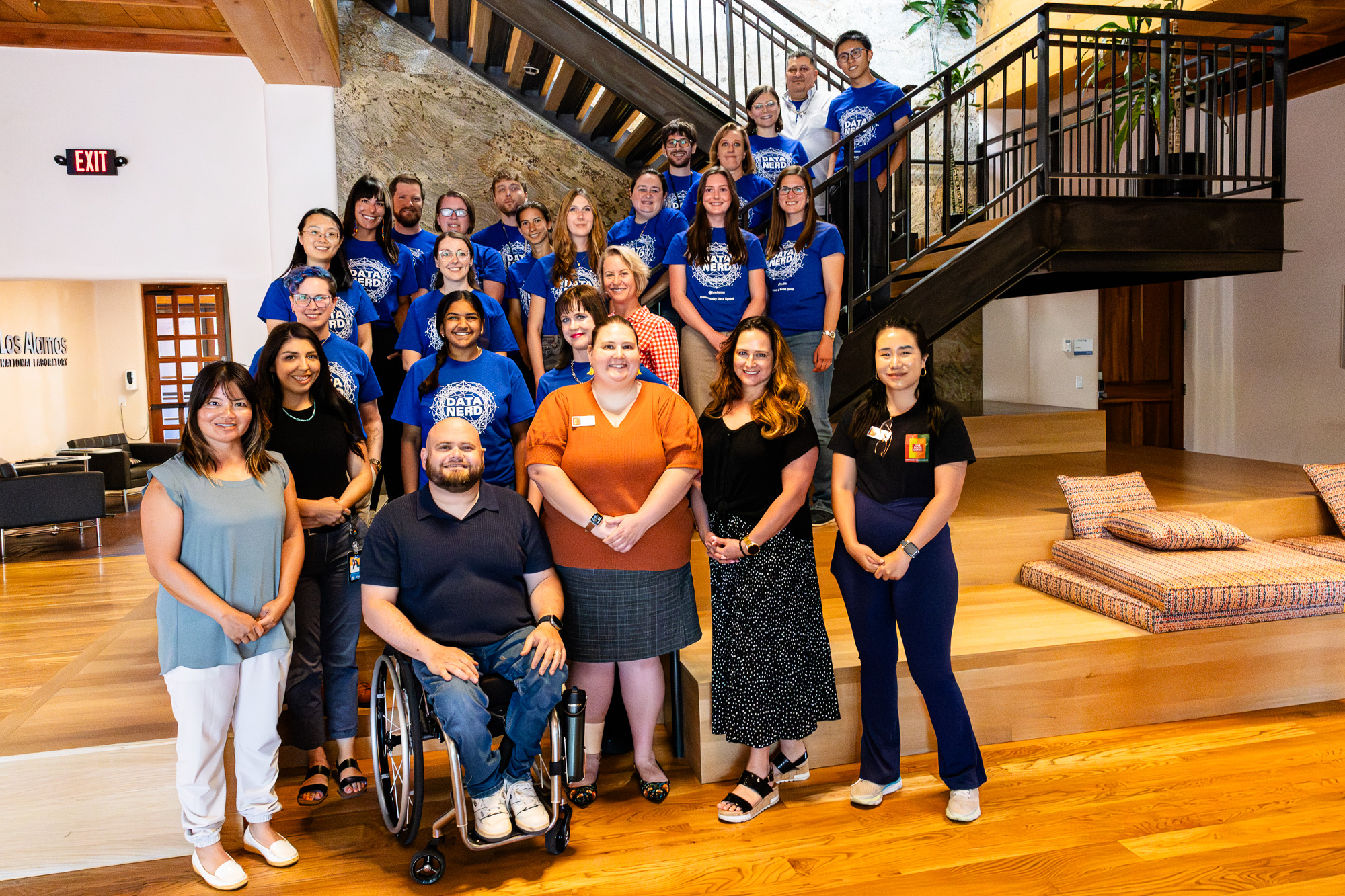
It's a summer Friday afternoon at the Lab's Dorothy McKibbin Conference Center in Santa Fe, and a team of six data scientists from across the Lab has just finished presenting the results of their weeklong volunteer work.
With tears in her eyes, Roslynn Gallegos from the New Mexico Office of Housing thanks them: "You have no idea of the impact you're having on tackling homelessness across the state."
Altogether, 17 data scientists took part in the fifth Lab-organized Northern New Mexico Community Data Sprint, volunteering a full week of effort to tackle data-related problems for three Northern New Mexico organizations at no charge: the Office of Housing and nonprofits Adaptive Sports Program New Mexico and The Food Depot.
Scientists love solving problems, and these self-described "data nerds" helped the organizations find answers to their pressing questions in the mounds of information the organizations already had but lacked the resources and expertise to explore more thoroughly.
The final presentations were a highlight for Emily Stark, principal investigator for the sprint. "Hands down, my favorite part is Friday afternoon. It is just amazing to see how appreciative the community partners are," she said. "I also love to see when partners start to engage with the presentations about a different organization; the Community Data Sprint is just so collaborative!"
During the presentations, Lab Director Thom Mason dropped in to thank the employees for their work and underline the Lab's commitment to making a positive impact in the Northern New Mexico community.
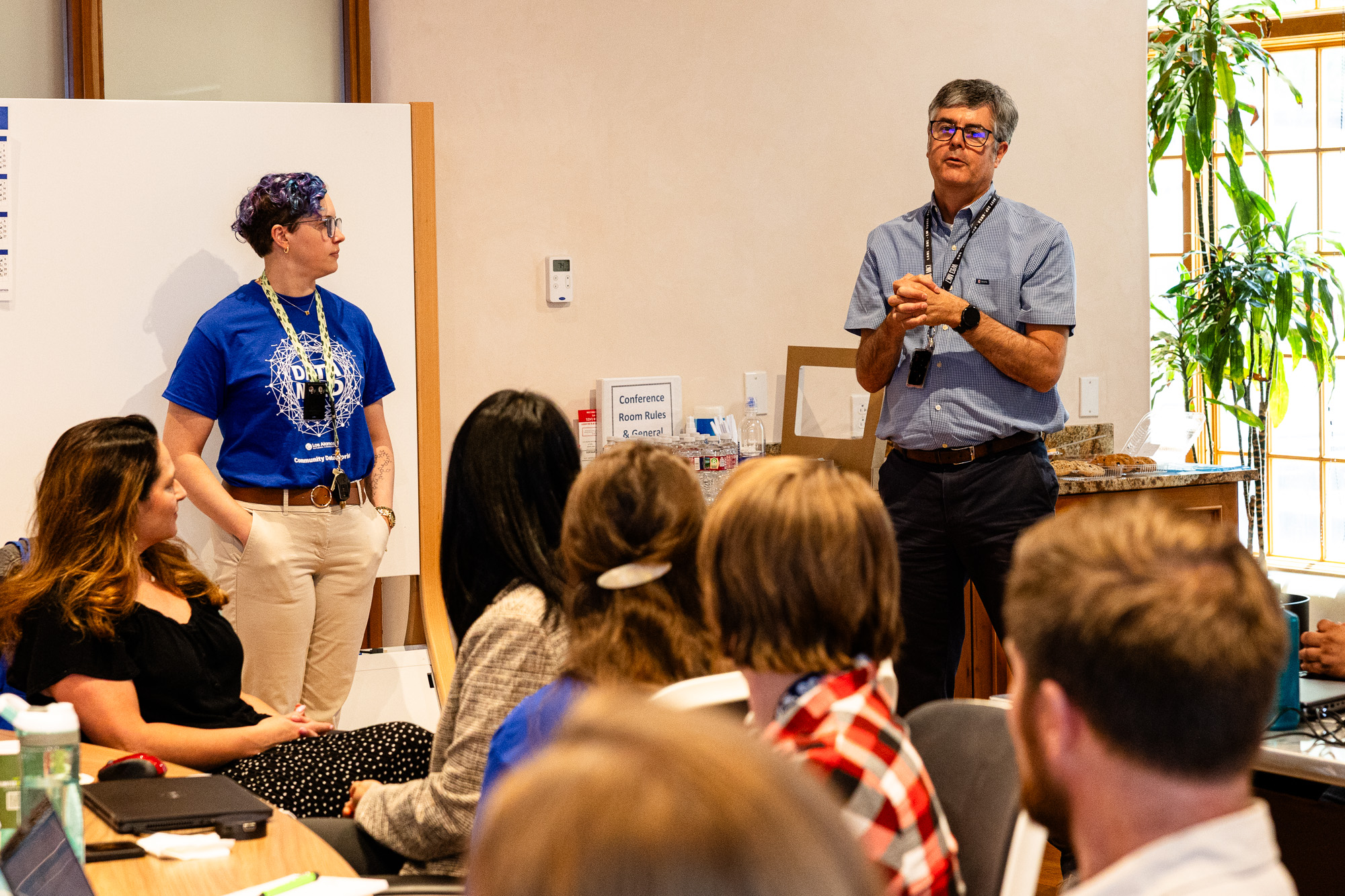
Providing insights that lead to practical solutions
The New Mexico Office of Housing examines the root causes of homelessness in New Mexico and the capacity of current resources to address the needs of citizens. Gallegos asked the Lab team to explore the demographics of the state's homeless population, issues around unaffordability of rental housing in the state and what provisions exist county by county to address homelessness, particularly for young people.
"This sprint brought to light issues, solutions and assets in ways we had not yet thought of. This team worked to truly present a comprehensive picture of how our neighbors are experiencing homelessness and housing insecurity, where we are succeeding and what needs work," Gallegos said. "They provided valuable information that can be used to create practical and innovative solutions for New Mexico.
"I was brought to tears by their efforts, kindness and just sheer passion to serve."
Encouraging greater participation
Based in Santa Fe, Adaptive Sports Program New Mexico serves kids and adults with disabilities, providing equipment and instruction in skiing, rock climbing and paddle boarding. Struggling to meet athlete demand and tackle volunteer and funding shortages, the nonprofit was looking for insights in their data to demonstrate their programs' impact, and to suggest approaches that would improve athlete and volunteer outreach and retention.
"The sprint was an extremely valuable, informative and fun experience," said Camille Romero, the nonprofit's executive director. "It helped us look at our data through a more analytical lens and gave us practical tools to begin answering some long-standing questions about participation trends. The process was well-structured and collaborative, and we walked away with actionable items.
"We were surprised by how much insight could be generated from the data we already had — once we looked at it the right way. We're already planning to make some changes based on the findings, particularly around how we gather feedback, communicate with participants between events and structure volunteer roles to encourage continuity."
Showing where services are needed most
Northern New Mexico's only food bank, The Food Depot provides 10 million pounds of food annually across nine counties and at more than 150 locations to individuals facing food insecurity. The nonprofit was looking to better understand food insecurity trends in the communities it serves, explore the impact of current distributions and establish if there was a need for additional distribution sites.
"They were able to really show where our services were needed most," said Amanda Bregel, communications director at The Food Depot. "The Data Sprint showed me the value of looking at multiple data points when thinking about our service impact or planning expansions."
As part of the sprint, the Lab's data scientists also recommended improved data collection and analysis techniques tailored to the nonprofit's needs.
"It was really lovely to get to know people who were also passionate about helping the community. They are all honorary 'food bankers' now, for sure!" Bregel said.
Part of the Community Technical Assistance Program
The Data Sprint is made possible by a grant from the Lab's Information Science & Technology Institute, in collaboration with the Community Technical Assistance program run by the Community Partnerships Office. Planning for the Community Data Sprint takes place throughout the year, culminating in the weeklong event that this year ran from July 15 to 19.
Joining Stark on the organizing team were Sara Mason, James Wernicke, Divya Makkenchery, and Patrick Duran from the Community Partnerships Office.
"This year we piloted a co-lead approach where Sara took on a lot of the logistics and communication while I got to focus on helping the partners craft their data questions," Stark said. "The Community Data Sprint has been a highlight of my time at LANL and this year is no different. It is an honor to work with these partners and learn more about my community each year."
The Community Technical Assistance program makes the unique expertise and capabilities of the Lab available at no cost to nonprofits and tribal and governmental entities located in the seven counties of Northern New Mexico.
"While the CTA is available to provide technical assistance for varying types of expertise across the Laboratory, the Data Sprint is a unique opportunity to harness a specific skill set at the Lab and partner with our technical principal investigators in the data sciences to support our local community organizations with data-related technical assistance," said Duran, program manager of the CTA.
Through the CTA, Duran provides administrative oversight and recruits community partners to participate in the sprint. "The Data Sprint has been a highlight in my work on the CTA. It exemplifies how we can be a force for good by utilizing the expertise at LANL to support the impactful work being done in our communities," he said.
Learn more about applying for help under the CTA program.
